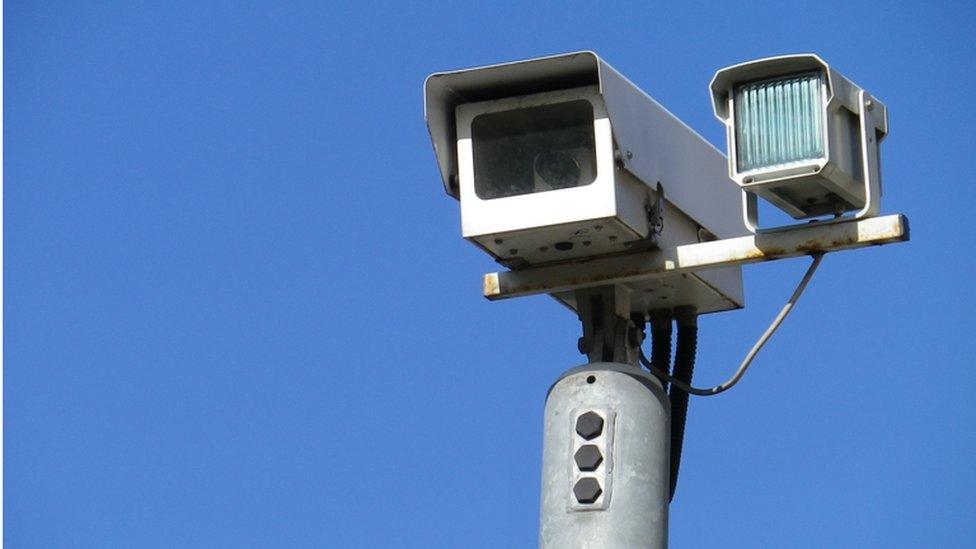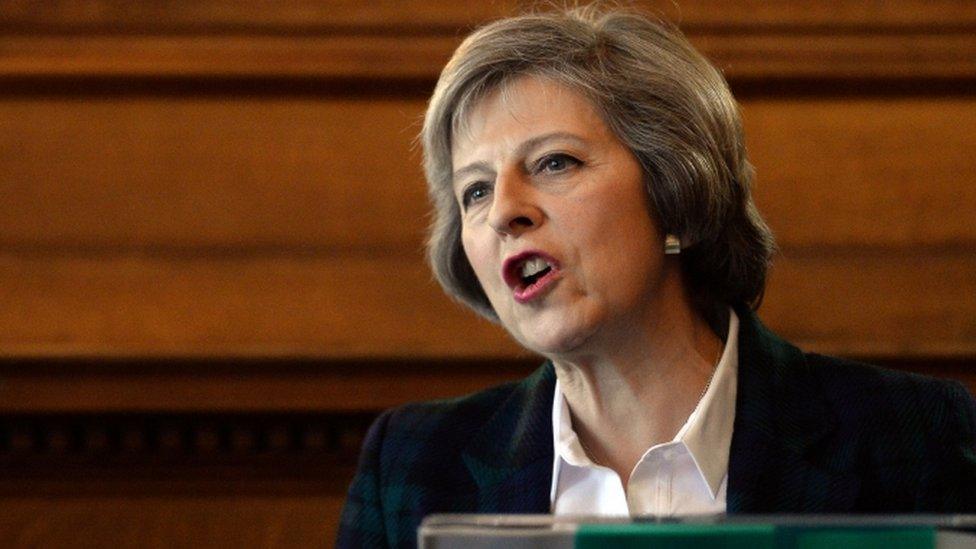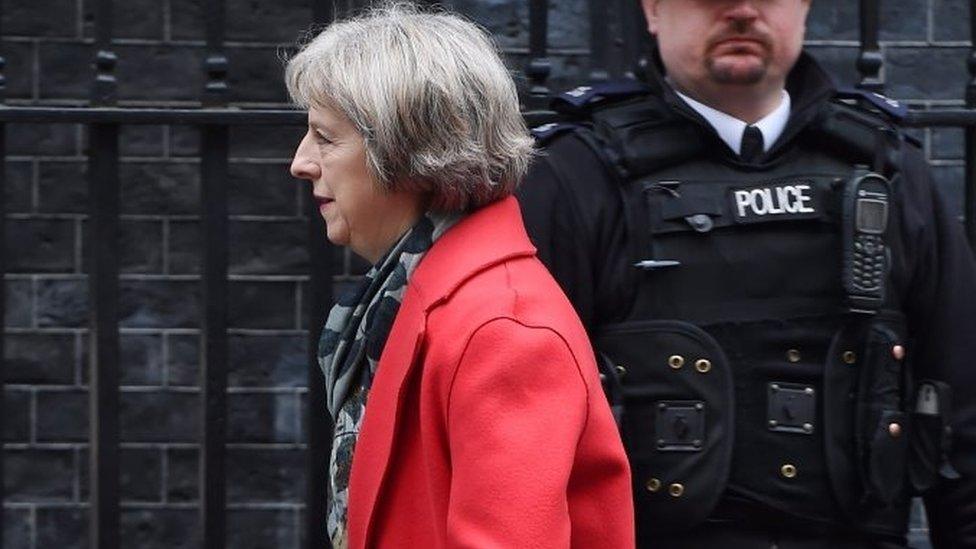Investigatory Powers Bill: Privacy concerns 'could be met'
- Published

Powers that allow UK security services to collect large volumes of personal data are not "inherently incompatible" with privacy laws, say MPs and peers.
The Human Rights Committee said so-called bulk data gathering was "capable of being justified".
It welcomed the Investigatory Powers Bill as a "significant step forward" in human rights terms but said more safeguards were needed.
The Home Office said it welcomed the joint committee's report.
The Investigatory Powers Bill aims to put on a firmer legal footing the collection by the security services of vast quantities of internet data in the UK and personal details held on databases.
Home Secretary Theresa May says these so-called bulk powers have played a significant role in every major counter-terrorism investigation over the past decade.
But civil liberties groups have raised concerns about privacy.
'Clear legal basis'
The government has already had to significantly amend its proposals after a draft bill last year was heavily criticised by three parliamentary committees.

Home Secretary Theresa May says the bill will uphold "both privacy and security"
The legislation returns to the Commons on Monday for further scrutiny, and the government wants it to become law by the end of year.
Ahead of the debate, the joint committee said in a report that bulk powers were not "inherently incompatible with the right to respect for private life", saying it was "capable of being justified if they have a sufficiently clear legal basis, are shown to be necessary, and are proportionate".
But it said the operational case for using the power should be assessed by the independent reviewer of terrorism legislation, who should report back to Parliament.
On the human rights implications of the bill, the committee welcomed steps towards providing "a clear and transparent legal basis" for the investigatory powers being used by security and intelligence agencies.
But it said improvements could be made "to enhance further the compatibility of the legal framework with human rights".
The MPs and peers also raised concerns that the wording of clauses concerning the subject matter of targeted interception and equipment interference warrants was "too broadly drafted" and suggested it should be tightened to prevent "large numbers of people" potentially falling within its scope.
And it said major alterations to warrants should not take place without approval by a judicial commissioner.
"In our view, the power to make major modifications to warrants for targeted interception, without judicial approvals, is so wide as to give rise to real concern that the requirement of judicial authorisation can be circumvented, thereby undermining that important safeguard against arbitrariness," it said.
'Rigorous scrutiny'
The committee also questioned the robustness of new safeguards for legally privileged communications and called for extra safeguards in relation to MPs' communications and journalists' sources.
Committee chairman Labour's Harriet Harman said: "Protection for MP communications from unjustified interference is vital, as it is for confidential communications between lawyers and clients.
"And for journalists' sources, the bill must provide tougher safeguards to ensure that the government cannot abuse its powers to undermine parliament's ability to hold the government to account."
Welcoming the committee's report, a Home Office spokesman said the government has "encouraged rigorous scrutiny of the bill".
She said the draft bill was scrutinised by three parliamentary committees "and we have listened closely to detailed and productive points made during Commons committee stage".
"It is right that any further detailed discussion and debate should be on the floor of the House at report stage," she added.
- Published15 March 2016

- Published2 March 2016
